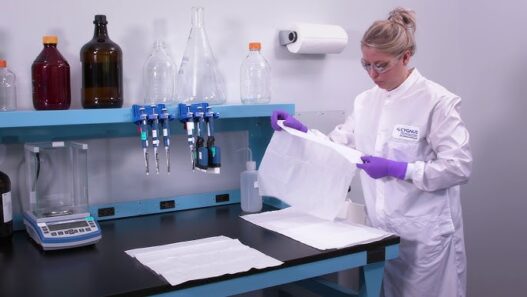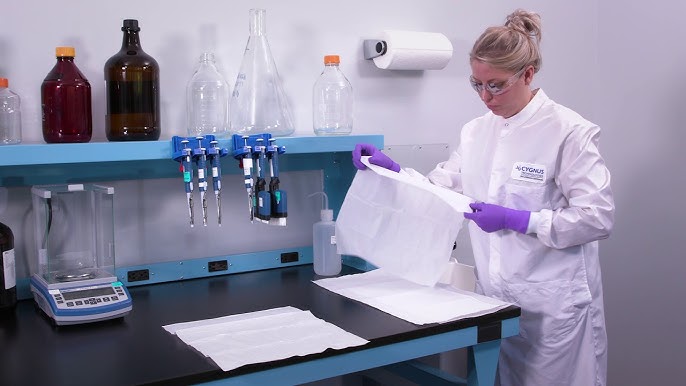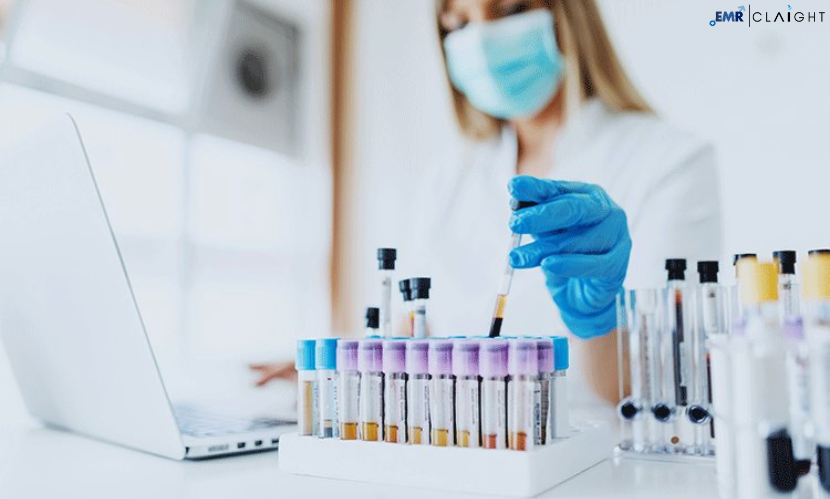In the development and production of biologic drugs, ensuring safety and efficacy is critical. Biologic drugs, derived from living cells, have revolutionized the treatment of diseases like cancer, autoimmune disorders, and many other conditions. However, due to their complex nature, biologics pose unique challenges, one of the most important being the control of host cell proteins (HCPs). These proteins, which can be introduced during the drug manufacturing process, must be carefully monitored and removed to prevent adverse effects in patients.
HCP analysis plays a vital role in identifying and quantifying these potentially harmful proteins to ensure that biologic drugs are safe for patient use. As a leading provider of protein analysis services for pharma, academia, and industry, we specialize in comprehensive HCP analysis to meet the needs of our clients and help them meet strict regulatory standards.
What Are Host Cell Proteins?
Host cell proteins (HCPs) are proteins produced by the host cells used in the manufacturing process of biologic drugs. Typically, living cells—such as bacteria, yeast, or mammalian cells—are engineered to produce the desired therapeutic protein. However, along with the therapeutic protein, the host cells also produce thousands of other proteins that can remain in the final product, even after purification steps.
These residual HCPs can trigger immune responses in patients, interfere with the drug’s therapeutic efficacy, or cause other safety concerns. Consequently, minimizing and monitoring the presence of HCPs in biologics is a critical task for manufacturers, which can be achieved through robust HCP analysis methods.
Why Is HCP Analysis Important?
Regulatory agencies such as the U.S. Food and Drug Administration (FDA) and the European Medicines Agency (EMA) have established stringent guidelines concerning the levels of HCPs allowed in biologic drugs. Biopharmaceutical manufacturers must demonstrate that their products meet these guidelines to ensure the highest standards of safety and quality.
Here are a few reasons why HCP analysis is essential:
Patient Safety: Undetected or elevated levels of HCPs in biologic drugs can lead to adverse immune reactions, potentially causing harm to patients. Accurate HCP analysis ensures that biologic drugs are safe for human use by minimizing the risk of unwanted contaminants.
Regulatory Compliance: Regulatory authorities require comprehensive HCP data as part of the approval process for biologic drugs. Detailed and accurate HCP analysis is key to demonstrating that your product complies with the strict regulatory requirements in place.
Product Quality: Removing HCPs enhances the overall quality and consistency of the biologic product. It ensures that the drug will perform as expected and retain its stability and efficacy throughout its shelf life.
Process Optimization: Regular HCP analysis allows manufacturers to assess and refine their purification processes. By monitoring HCP levels at various stages of production, companies can make data-driven improvements to enhance the purity of their final product.
Given the importance of controlling HCPs, it is crucial for manufacturers to work with experienced and reliable protein analysis laboratories that offer professional lab services. Our laboratory provides tailored solutions designed to meet the specific needs of biologic drug developers across the industry.
Common HCP Analysis Techniques
There are several techniques available for conducting HCP analysis, each with its own strengths depending on the stage of drug development and the specific objectives of the analysis. The two most widely used techniques are enzyme-linked immunosorbent assays (ELISA) and mass spectrometry (MS).
ELISA
ELISA is the most common method used for HCP analysis. It is a sensitive and specific technique that uses antibodies to detect and quantify HCPs. This method is particularly effective for routine monitoring of HCP levels during the production of biologic drugs. However, ELISA relies on the availability of antibodies that can bind to the specific HCPs present in the sample, which may limit its ability to detect all proteins.
Mass Spectrometry (MS)
Mass spectrometry offers a more detailed and comprehensive approach to HCP analysis. It allows for the identification and quantification of individual HCPs without the need for antibodies, making it a more versatile method than ELISA. MS can detect a wider range of proteins, including those that might be missed by ELISA, making it a valuable tool for early-stage drug development when a detailed understanding of the HCP profile is necessary.
Both ELISA and MS have their place in the HCP analysis workflow, and the choice of method depends on the stage of development and the specific goals of the analysis. Our laboratory is well-equipped to perform both ELISA and mass spectrometry, ensuring accurate and reliable results for every client.
Partnering for Comprehensive HCP Analysis
Accurate HCP analysis is critical for ensuring the safety and efficacy of biologic drugs. Our lab specializes in delivering high-quality, professional lab services for pharma, academia, and industry clients who need reliable and timely HCP testing. With our cutting-edge technologies and experienced team of scientists, we can support the development and manufacturing of biologic drugs at every stage.
Here’s what sets us apart:
- Professional Lab Service: Our laboratory is equipped with state-of-the-art technology and staffed by experts in protein analysis. We provide precise, high-quality results to meet your specific requirements.
- Customized Solutions: We offer flexible and customizable HCP analysis solutions to meet the unique needs of each client, whether you’re in the early stages of research or preparing for commercialization.
- Regulatory Expertise: Our team is well-versed in the regulatory requirements for HCP analysis. We can provide the necessary data and documentation to ensure your biologic drug complies with FDA, EMA, and other regulatory standards.
- Fast Turnaround: We understand the fast-paced nature of the pharmaceutical industry and offer quick turnaround times to keep your project on track.
Get Free Quotes or Advice
If you’re looking for expert HCP analysis, we’re here to help. Contact us today for free quotes/advice on how we can assist with your biologic drug development program. Our team is available to provide guidance and tailor our services to meet your specific needs.
For more information about our professional lab services, go right here to learn how we can support you in achieving safe, compliant, and effective biologic drug production.
Ensuring patient safety and regulatory compliance is crucial in the development of biologic drugs. Partner with us for your HCP analysis needs, and let us help you navigate the complexities of biologic drug development with confidence.











